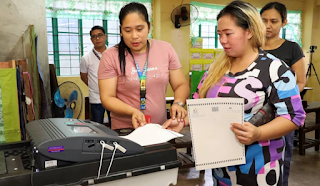During the recent US National Conference of State Legislatures, the director of the MIT Election Data and Science Lab dropped a bombshell about the United States’ 10,000 local electoral management boards (EMBs), majority of which he said are being “woefully underfunded,” leaving them ill-equipped to address a raft of problems that has vexed US elections in recent years.
Election expert Charles Stewart III, who heads MIT initiatives to conduct scientific analysis on election technology, election administration, and election reform, placed the cost of nationally administering a presidential election somewhere between $2 billion-$5 billion.
Stewart III stressed the imperative for state and local governments to pony up the funding for EMBs, which are grappling with a host of concerns such as a high turnover rate among poll workers, harassment of poll workers by radical groups, and intensified cybersecurity threats.
The Cost of Conducting Elections
In his 2022 paper “The Cost of Conducting Elections,” Stewart suggested how election officials themselves could be abetting the problem by “making do” with what they have.
“They often express pride in pulling off the complicated logistical maneuvers necessary to conduct elections on a shoestring budget. One consequence of the frugality imposed on election administration is that services provided to voters vary considerably across the nation,” Stewart said.
“Some states and localities flood mailboxes with voter guides, use the most up- to-date equipment, and deliver information and services on sophisticated websites. Others provide only minimal services to voters, rely on voters to figure out the details of voting on their own, and use equipment that is no longer manufactured or is incapable of being updated with the latest security patches,” he added.
Underfunding also a global concern
A paper by ACE Project suggests that EMB underfunding not an exclusively US phenomenon but is also a growing concern worldwide. The paper posits that EMBs from Afghanistan, Cambodia, Haiti, Indonesia, Iraq, and Liberia, among others, are not getting the needed funding from their governments and are merely relying on international donors for substantial amounts of budgetary support, as well as technical assistance.
The report is critical of this dependence on external help. Apart from sustainability issues, the report cites how reliance on external funding could be problematic as conditions that donor agencies impose on EMBs could hamstring their work. Moreover, requirements from their own governments may make it difficult for EMBs to do a proper accounting of the donated funds.
The report goes on to state that, while inadequate funding may not necessarily trigger violence directly, inadequate resources may force EMBs to make concessions that can compromise the integrity and security of elections, leaving them vulnerable to disputes that can in turn feed violent conflicts.
“For example, core cost deficiencies may affect an electoral process’s technical integrity; lack of diffuse funds will limit the engagement of supporting agencies, especially those with the task of providing security; and a lack of integrity funds at the disposal of an EMB may harm the legitimacy of the process,” the paper said.
What can be done?
The International Institute for Democracy and Electoral Assistance (International IDEA) perhaps summed it up best when it made this reminder: “Elections are an investment, not an expense.”
In an article on its website, the intergovernmental organization said that for all citizens of the free world, election costs should be thought of as the public investment that sustains democracy.
“The ‘return on investment’ that is associated with democratic and inclusive elections, supported by other key components of a democracy, can be measured in terms of social stability within a nation,” it said.
“By contrast, countries that underfund investments in their democracy tend to be associated with ineffective public administration (including election administration); low levels of voter turnout; high levels of election fraud, manipulation and voting irregularities; limited freedom for news media to scrutinize the exercise of power; inconsistent access to justice, civil liberties, social rights and equality; corruption and unequal enforcement of laws; and public dissatisfaction with political parties, legislatures and governments,” it added.
For International IDEA, the funding of national electoral processes is the sole province of the national government, and that donations, either from donor countries or the international community, should be shunned.
“Election financial assistance by donors should always be considered temporary, even though it may be necessary during post-conflict or transitional periods,” it said.
The article exhorted those who support and wish to safeguard democracy to ensure that discourse around election costs is publicly debated and “placed in a context based on facts, law and agreed societal values.”



